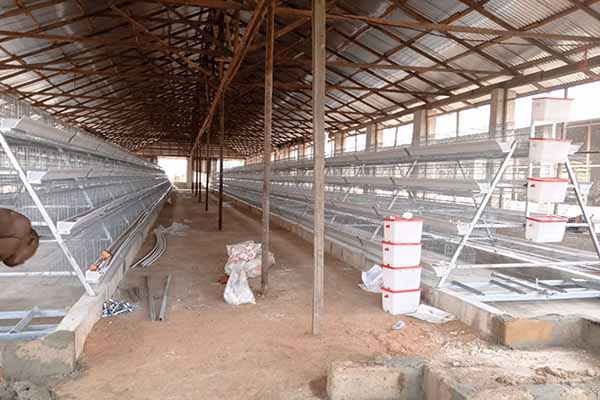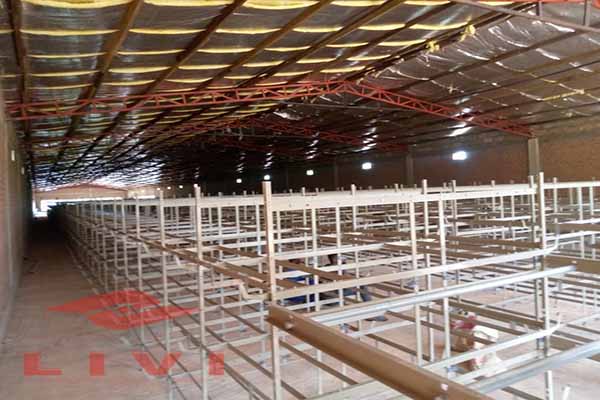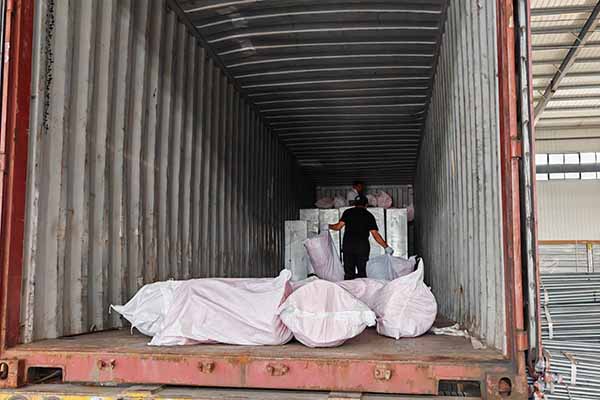Environmental Protection Equipment Requirements for Chicken Farms in Kenya
Time : 2025-06-30
In recent years, the poultry industry in Kenya has witnessed significant growth. As the demand for chicken meat and eggs continues to rise, so does the need for efficient and sustainable farming practices. One crucial aspect of this is ensuring that chicken farms are equipped with the necessary environmental protection equipment. This article delves into the specific requirements for environmental protection equipment in chicken farms in Kenya, focusing on the use of professional poultry equipment knowledge.
Introduction to Chicken Farm Environmental Protection
Environmental protection in chicken farms is essential for the health of the birds, the workers, and the surrounding community. It involves managing waste, controlling disease, and ensuring a safe living environment for the chickens. The following sections discuss the various types of environmental protection equipment that are necessary for a chicken farm in Kenya.
1. Ventilation Systems
Proper ventilation is crucial for maintaining optimal conditions within a chicken house. In Kenya, where temperatures can be high, a well-designed ventilation system is essential to regulate temperature, humidity, and airflow. Here are some key requirements for ventilation systems in chicken farms:

- Air Inlets: Inlets should be strategically placed to allow for the entry of fresh air into the chicken house. They should be equipped with adjustable screens to prevent the entry of pests and to protect the chickens from wind chill.
- Air Exhausters: Exhausters should be installed to remove stale air and excess heat from the house. They should be capable of handling the required airflow and should be equipped with filters to trap dust and pathogens.
- Control Systems: Automatic control systems can be used to adjust the airflow based on temperature and humidity levels, ensuring that the chickens are always in a comfortable environment.
2. Manure Management Systems
Manure is a significant source of pollution in chicken farms. Effective manure management systems are necessary to reduce environmental impact. The following equipment is required:

- Manure Removal Equipment: Manual or mechanical systems for removing manure from the floor of the chicken house. This can include scrapers, conveyors, or conveyor belts.
- Composting Facilities: Composting pits or drums should be used to process manure. This not only reduces the environmental impact but also produces organic fertilizer that can be used in agriculture.
- Odor Control Systems: Odor control systems, such as biofilters, can be used to reduce the smell of manure and minimize the impact on the surrounding community.
3. Water Management Systems
Water is a critical resource in poultry farming. Efficient water management systems are essential to minimize waste and ensure the health of the chickens. Here are the requirements for water management:
- Water Filtration Systems: Filters should be installed to ensure that the water used for drinking and cleaning is free from contaminants.
- Water Recycling Systems: Systems should be in place to recycle water used in the chicken house, reducing the amount of water required and minimizing environmental impact.
- Water Quality Monitoring: Regular monitoring of water quality is necessary to ensure that the chickens are not exposed to harmful contaminants.
4. Biosecurity Measures
Biosecurity is crucial in preventing the introduction and spread of diseases in chicken farms. The following equipment and measures are required:
- Disinfection Systems: Disinfection systems should be used to clean equipment, vehicles, and workers’ boots to prevent the spread of diseases.
- Barriers and Fencing: Barriers and fencing should be installed around the farm to prevent unauthorized access by wild animals and pests.
- Pest Control Equipment: Equipment such as traps and sprays should be used to control pests that can carry diseases or damage the farm.
5. Energy Efficiency Equipment
Energy efficiency is an important consideration for sustainable chicken farming. The following equipment can help reduce energy consumption:
- Solar Energy Systems: Solar panels can be used to provide power for lighting, ventilation, and other systems, reducing reliance on grid electricity.
- Insulation Materials: Insulating the chicken house can help maintain a constant temperature, reducing the need for heating and cooling.
- Energy-Efficient Lighting: LED lighting is more energy-efficient than traditional lighting and can reduce energy costs significantly.
Conclusion
Environmental protection equipment is a crucial component of modern chicken farming in Kenya. By implementing the necessary equipment and measures, chicken farmers can ensure the health and well-being of their birds, reduce environmental impact, and contribute to the sustainable development of the poultry industry. It is essential for farmers to consult with professionals and adhere to the specific requirements for environmental protection equipment to create a productive and environmentally friendly chicken farm.
specific requirements for environmental protection equipment to create a productive and environmentally friendly chicken farm.











